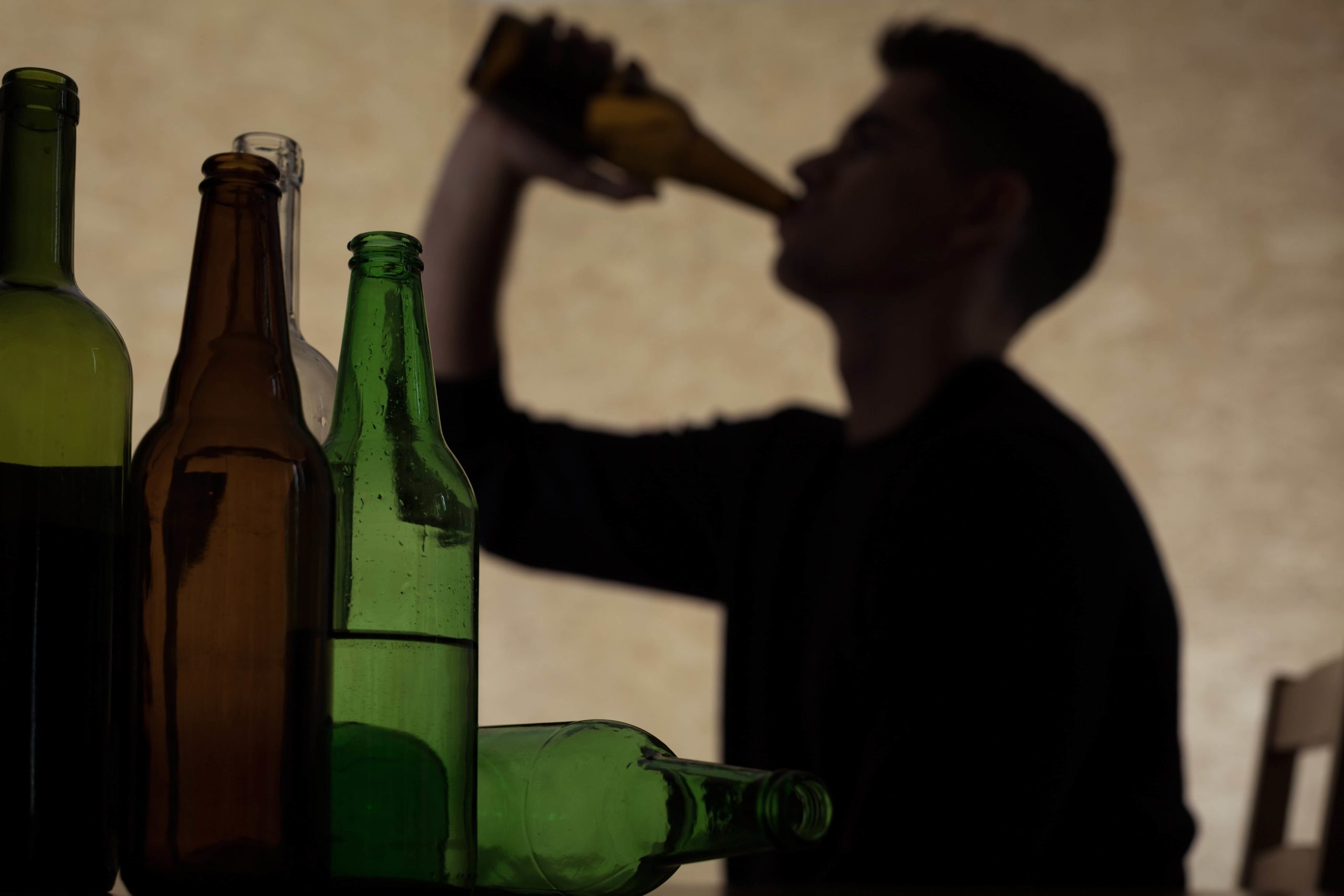When someone uses illicit drugs for a long period of time and develops physiological dependencies on them, they put themselves at a variety of risks.
A person struggling with substance use may not be thinking about what it will feel like to experience withdrawal symptoms, but when the time comes, it can be very difficult.
If you or a loved one are dealing with substance use disorder or addiction, going through the drug withdrawal stage is necessary to recover. But that doesn’t mean that it’s easy.
Withdrawal can feel like you are dying, and without proper support or supervision, withdrawal can sometimes lead to fatal consequences.
This doesn’t mean that you should continue to use to subdue the withdrawal symptoms, but rather you should look for professional help to guide you through the process. This will ensure your safety and help you understand what is happening to your body.
Withdrawal can be terrifying, but it’s often the first step towards taking back ownership of your life and decisions. If you or a loved one is struggling with substance use disorder, keep an eye out for the signs and symptoms of withdrawal. Understanding the symptoms may help you ease through the process and come out successful on the other side.
What Is Substance Use Disorder?
Substance use disorder (SUD) occurs when someone has recurring use of any type of drug that causes disruption in their everyday life and that they lack control over.
People with substance use disorder rarely have control over their actions and their substance use, making it very difficult for them to get better. Substance use can range from mild to severe, and no two people experience the same journey.
Many factors can lead to substance use disorder and drug addiction, including environmental impacts, societal pressures, and genetics. People who are struggling might have been predisposed to SUD, but without environmental and societal factors, they might not have developed the substance use disorder.
Peer pressure, being exposed to substances at a young age, and mental health all impact your choices with substances.
What Is Withdrawal?
Withdrawal occurs when you stop or limit your substance use. Withdrawal symptoms can vary across the different substances, but the symptoms can be debilitating. Without proper support, you could suffer intensely throughout the withdrawal process.
Withdrawal includes the physical, mental, and behavioral changes that you go through when you stop using a substance. For each individual, the withdrawal process could be unique; with different substances, you have different reactions. The symptoms of withdrawal during alcohol dependence can differ from the symptoms of withdrawal for a person with a different drug dependence.
When you use a substance daily, your body can develop a physical dependence on the drug. That means when you want to stop, your body has to reverie back to its old ways, which isn’t a smooth process, but a necessary one.
Why Does Withdrawal Occur?
Withdrawal occurs when your body goes from using a substance every day to not at all. Your body is not used to living life without the substance, so your body reacts negatively and angrily when you don’t use it. When you are regularly using, your brain and body adjust and over time and accept these feelings as normal.
The symptoms you will experience can vary greatly depending on what substance you used, for how long, and what other factors may be playing a role. If you are using substances frequently and in large quantities, you should expect withdrawal symptoms to occur if you are planning to quit.
What Are Common Symptoms of Withdrawal?
Depending on what substance you were abusing and for how long, your withdrawal symptoms will vary. Everyone experiences drug use differently, and because of this, the way they experience withdrawals is very similar. It can be difficult to know what to expect when it comes to withdrawal, but there are a few common symptoms that might come to light.
Knowing what to look out for can help you manage withdrawal symptoms in the safest way possible. Be sure to look out for some common signs of withdrawal:
- Changes in mood
- Changes in appetite and hunger
- Tremors and shakiness
- Vomiting and nausea
- Sweating profusely
- Irritability and fatigue
- Muscle pains
- Difficulties with sleep
These symptoms listed above are only general signs to look out for, but each substance has its own symptoms of withdrawal.
Are There Different Types of Withdrawal?
Every substance you put into your body will have a different and varying effect on you.
Therefore you can assume that the withdrawal symptoms for different substances will also be different, like symptoms of benzodiazepine withdrawal versus opiate withdrawal symptoms.
Symptoms can range from mild to severe depending on your usage and how long you have been dependent on the substance.
Withdrawal symptoms can be very uncomfortable and painful, which is why it can be difficult to get through the process — especially in cases of severe withdrawal. Many people will fall back and use the substance to get over the withdrawal symptoms, knowing that it’s just what they need to feel no longer ill. Because of this, getting professional treatment and having solid support systems can ensure that you stay safe and successful during your detox.
The following sections highlight the symptoms of withdrawal from different substances so that you can have a better understanding of what to expect.
Alcohol
Withdrawing from alcohol can have a very serious and severe effect on a person.
Withdrawal symptoms may begin between 6 and 24 hours of heavy and prolonged drinking, and they come on strong. For several days after the start of symptoms, it’s likely these effects will get worse before getting better. It can be extremely painful and uncomfortable to go through detox during this time. Some symptoms of alcohol withdrawal are:
- Irritability and restlessness
- Anxiety and depression
- Nightmares and insomnia
- Intense sweating and hot flashes
- Nausea and vomiting
- Rapid heart rate and increased blood pressure
- Tremors
- Seizures
- Hallucinations
Long-term effects of excessive alcohol can be very damaging to your body and even fatal. Heart disease, liver disease, depression, and cancer have all been associated with long-term drinking, so intervening as early as possible is essential.
Benzodiazepine
Benzodiazepines are used to depress the central nervous system and are frequently prescribed for anxiety and panic disorders, as well as certain seizure disorders. Mixing these drugs with alcohol or opioids has the potential to lead to fatal overdoses.
The withdrawal effects from Benzodiazepines can appear anywhere from hours to days after stopping the use of short-acting benzodiazepines like Ativan. For long-acting benzodiazepines like Valium, withdrawal effects can appear several days to a week after stopping use.
Symptoms of withdrawal caused by short-acting benzodiazepines usually resolve within four to five days. However, with long-acting ones, the withdrawal symptoms might peak in the second week and resolve in the third or fourth week.
Others experience lingering effects of the withdrawal for up to eight weeks, making it a very difficult drug to quit using.
Symptoms you might experience are:
- Agitation and irritability
- Hallucinations and delirium
- Rapid pulse and sweating
- Loss of concentration and memory
- Seizures and tremors
- Anxiety and insomnia
- Sensitivity to light, sounds, and smells
Though the recovery is long and hard, it’s well worth it when you come out in control of yourself once again.
Marijuana
Regardless of if you use medical marijuana or recreational marijuana, if you stop using after heavy, prolonged usage, you will experience withdrawal symptoms for several weeks. Marijuana is a drug that many people use frequently, so if you quit cold turkey, there will be side effects as your body gets used to sobriety.
Symptoms that you might experience are:
- Nervousness and restlessness
- Anger and irritability
- Loss of appetite and abdominal pain
- Nightmares and insomnia
- Tremors and overall shakiness
- Nausea and headaches
- Depression and anxiety
People going through marijuana withdrawal will also experience intense cravings for marijuana, making it very difficult to stay sober.
Opioid
Opioid withdrawal symptoms can be very difficult to go through, and though not always life-threatening, being assisted through them can make it easier to cope. Opioids include illicit drugs like heroin and prescription opioid painkillers like OxyContin and Vicodin.
Symptoms associated with opioid withdrawal are:
- Dysphoria
- Anxiety and depression
- Dilated pupils
- Goosebumps
- Runny nose and watery eyes
- Nausea and vomiting
- Diarrhea
- Dehydration
- Insomnia
- Fever and sweating
Because you can be prescribed a certain kind of opioid, it makes it easier to misuse them. If you are having a hard time dealing with substance use, you can talk with your doctor about alternatives to opioid prescriptions for pain.
Stimulant
Stimulants are “upper” drugs that affect the central nervous system and can be prescribed to people with certain conditiions. Adderall and Ritalin are two examples of stimulants that are prescribed to those with conditions like ADHD, but these medications are still susceptible to misuse. Illicit stimulants like cocaine and crystal methamphetamine are also highly addictive when used.
Symptoms of stimulant withdrawal are:
- Depression and dysphoria
- Agitation and irritability
- Increased appetite
- Fatigue
- Insomnia or excessive sleep
- Aching muscles
People who are experiencing stimulant withdrawal are likely to feel intense cravings after stopping heavy usage pretty soon after. They might also experience suicidal thoughts and intense depressive states, so monitoring someone in this state is helpful to keep a close eye on their behaviors.
What Are Treatment Options for Withdrawal?
If you are looking to get yourself or a loved one into treatment for their substance use, you or your loved one will, unfortunately, need to go through the withdrawal process.
When you are going through a detoxification program, you are monitored throughout your detox so that you can be as comfortable as possible. The professionals a part of these programs are focused on keeping you safe and helping you get better.
During a detoxification process, you are equipped with both psychiatric and medical support to get you through the withdrawal. If you are eligible, you will be treated through a medically assisted treatment (MAT) program, during which doctors can administer Methadone or Buprenex to you. With a monitored detoxification process, you have access to medical professionals who can assist you when you need it.
What Are Tips To Cope With Withdrawal?
If you are experiencing withdrawal, being in a facility is your best option, but there are ways to help cope with the symptoms of withdrawal. Of course, asking for help can be difficult but it’s necessary. Other ways to cope with withdrawal include:
- Drinking plenty of water. Many symptoms of withdrawal can lead to dehydration. It’s important that you are drinking water throughout the withdrawal period to try to reduce some of the symptoms like headaches and fatigue.
- Eat nutritious meals. It might be difficult, but focusing on what you are eating can help to improve your mood. You might be irritable and tired, so eating fatty and sugary foods will only bring you down. Instead eat plenty of vegetables and fruits to keep your energy and water-take up.
- Try to get out and exercise. Depending on how bad your symptoms are, you can try to get up and exercise a bit. Even if you are just stretching and doing some yoga, your body will thank you. If you can go out and walk around, that might be even better.
- Don’t fight your sleep. You will likely be experiencing fatigue, so catching up on sleep can only help. Don’t feel bad about lounging around and just getting through it.
- Spend time with people who care. Let people who love you watch over you. If you aren’t in a treatment facility, you can look for help from your friends. Asking for some accountability to be made can be difficult but well worth it.
Working on managing your stress and cravings is not an easy task. You can try different self-care acts like meditation, journaling, art, or reading to take your mind off of the withdrawal symptoms as well. Anything to get you focused on improving your life and avoiding substances!
Getting Help With Soba
If you or a loved one is struggling with substance use disorder and are seeking help, reach out to a representative at Soba Recovery Centers.
With two locations, one in Mesa, Arizona, and San Antonio, Texas, you can receive professional treatment whenever you need it. Having 24-hour professional monitoring can ensure that you recover as easily as possible.
Going through the withdrawal process on your own can be dangerous and very difficult. When you receive treatment at Soba, you don’t have to worry about going through withdrawal alone. Our detoxification process is fully monitored so that you can access assistance at any point. We understand the difficulties that surround withdrawal and don’t believe that you should be alone through the process.
Get help today and access a better future for yourself tomorrow.
Sources:
Mental Health and Substance Use Disorders | SAMHSA
Drug & Alcohol Withdrawal Symptoms & Treatment | DrugAbuse.com
Drinking Too Much Alcohol Can Harm Your Health. Learn The Facts | CDC











